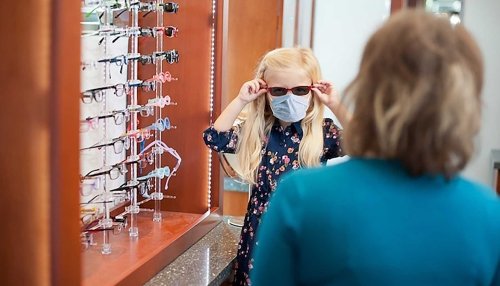Protecting Your Eyes from Sunlight
Quality sunglasses are vital in protecting the eyes against the sun’s harmful UV rays.

As the warmer months approach, many people are looking forward to spending time outdoors, prompting most to reach for a pair of sunglasses. While fashionable, quality sunglasses are also vital in protecting the eyes against the sun’s harmful UV rays.
UV rays can pose a threat to your eyes year-round but may be more damaging with long-term exposure, as it increases the risk of developing cataracts, macular degeneration, and some cancers of the eye. All of which can lead to vision loss and ultimately low vision.
Low vision is defined as decreased vision that cannot be corrected with glasses, contact lenses, or other standard treatments such as medication or surgery. It can cause difficulty with daily activities such as reading, driving, and cooking. According to the National Eye Institute (NEI), visual impairment is expected to increase steadily, with projections showing more than 8 million suffering from low vision by 2050.
Visual impairment from any ocular condition requires an evaluation by an eye care provider. Low vision rehabilitation specialists can assist by providing devices such as magnifiers, telescopes, and nonoptical aids. By making the most of remaining vision, patients often experience an increase in their quality of life.
Though many are unaware of the dangers of UV exposure, it is important to take daily precautions to protect your eyes through all stages of life. Tips to help lower your risk of developing vision-threatening eye diseases and ocular cancers include:
Choose quality sunglasses:
- Labeled as 100% UV protection or UV400
- Blocks both UV-A and UV-B rays
- Screens out 75% to 90% of visible light
- Lenses should be free of distortion and imperfections
- Do not choose sunglasses based on the darkness of the tint
Protect your eyes from UV exposure:
- Wear sun protection even on overcast/cloudy days
- Do not look directly at the sun
- Wear wide-brimmed hats along with sunglasses
- Avoid midday and early afternoon sun
Be sure to talk with your eye care provider about your risks to ensure appropriate UV absorbing glasses and/or contact lenses are prescribed to address your needs.
Parres M. Wright, O.D., F.A.A.O., Chicago College of Optometry, Eye Institute
Sources:
American Optometric Association Ultraviolet (UV) protection
American Academy of Ophthalmology Sun, UV Light, and Your Eyes

